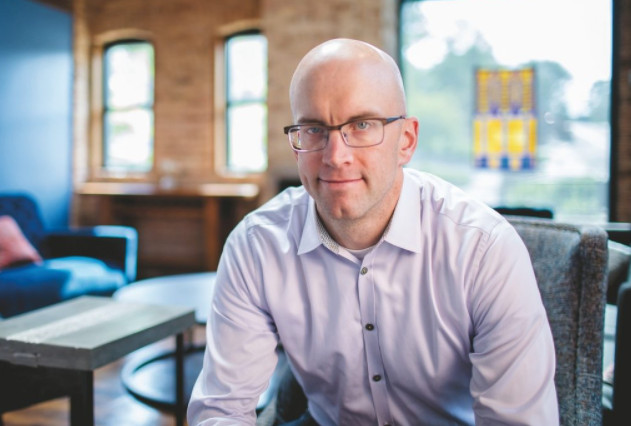Work: What’s the Point?
There is a lot of discussion these days about the “Great Resignation,” the worker’s power, and worker fulfillment. These are good and necessary conversations. That said, in today’s post, I want to make a few points that I think get lost in the conversation.
What if we are asking work to fulfill something in us it was never intended to fulfill?
This is a big question, and admittedly, a personal one. I always aim to be transparent in these posts, so I admit that I often struggle with this question. Occasionally, I pull up to work wondering if I even want to be there anymore. Before you judge that statement, consider the challenges facing me — working with siblings in a family business, in an industry that is, quite frankly, under attack, and dealing with all the current economic challenges. My work is hard. And I know your work is too.
So back to the question: what if the problem is not the situation I am in (or the situation that you’re in) but something deeper? What if we are asking work to fulfill something in us that it was never intended to fulfill? Perhaps, that is why I sometimes pull up to work not wanting to be there. Perhaps, that is why my discontentment finds me at home, on the golf course, and anywhere else I search for meaning and purpose where it was never intended to be found.
A new term, “quiet quitting,” has entered our lexicon this year, and it is directly relatable to the reality I’m describing. “Quiet quitting” occurs when people quietly quit their job yet still “work” their same job. Yes, that sounds weird. But, it is a real thing.
On one hand, I think what people are saying is healthy. They’re saying that work is no longer going to be 24/7. They are going to have a life. They are going to stop taking work so seriously. These are not “boundaries,” they are an acceptance of limits — limits God placed on work via the Sabbath, I might add. I celebrate when people realize that life is more than work, especially when those people work with us at Hoffer Plastics!
On the other hand, the notion of “quitting” and doing less feels like it misses the mark. While I don’t believe people can find their fulfillment in work, doing shoddy work is also harmful. Now before you go to send me an email, realize that I know not everyone “quiet quitting” is going to do shoddy work. But isn’t our human tendency to flip from one extreme to another, or is that just what we do with fad diets? Isn’t in our nature to be “off” or “on” and not something in between?
The Purpose of Work: Contribute Value
I think a more helpful perspective is realizing the work’s purpose. Work is good to the extent it contributes positively to human flourishing. Whether you are an IT person or a Kindergarten teacher is irrelevant. There may be vast differences in what you do, but the overall purpose of your work is similar. The purpose is to contribute something of value. The IT person may spend her time making systems work efficiently for organizations, while the Kindergarten teacher provides five- and six-year-olds with their first seedlings of knowledge and wisdom. Still, both jobs exist to make things better for humans.
What I am advocating and attempting to practice is to arrive at work every day focused on contributing something of value. That’s it. I know it sounds so simple that it is easy to miss its significance. I can walk the floor and have a meaningful conversation, listen to one of my sisters talk about their daughters, or have a deep conversation with a customer. These are vastly different conversations, but they all can lead to human flourishing when done with purpose.
And this, I believe, is the purpose of work.
Next week, I will share more thoughts on what makes work hard for senior executives. But before doing that, I want to close with one last thought on work from a Biblical perspective.
I mentioned above that the Sabbath was made for man. Regardless of what you think about the creation story, know that God is a God of rest. The Sabbath is a gift more than a rule. It is a gift from God that says he loves you and knows your limits. It is a weekly reminder that success is not up to you and that the demands of the job are not 24/7. You can rest. As I learned when I was in the hospital for a week in 2020, the show goes on without you — sometimes even more successfully! The point here is that work was never meant to complete you. Only God can do that.
Work: What’s the Point? Read More »









